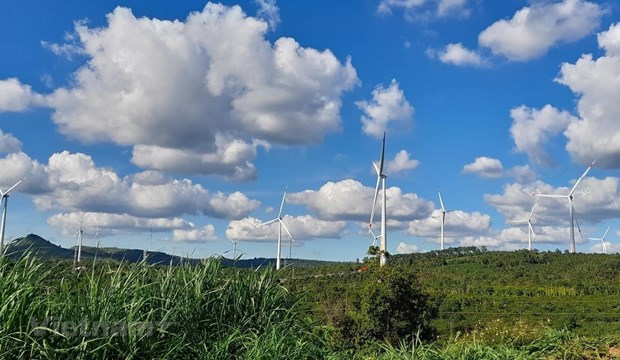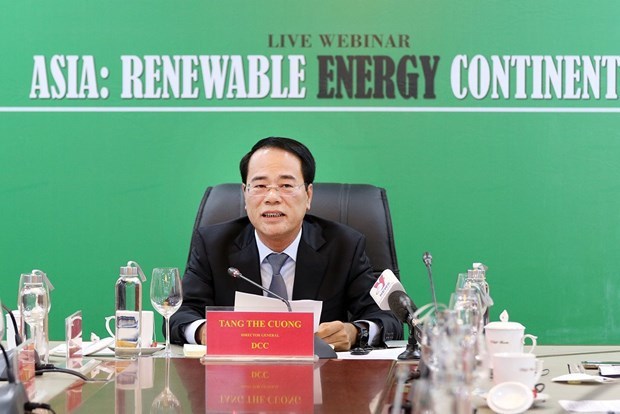
Illustrative image. (Photo: VNA)
In his message to a recent webinar themed “Asia: Renewable Energy Continent”, Cuong suggested seven focus points to fully unleash the potential of renewable energy, as well as accelerate the transition from fossil fuels to renewable energy.
First, renewable energy needs to become a public commodity benefits all people, so that everyone has access to renewable energy. In particular, communities and groups that are adversely affected by energy transition need to be provided with support.
Second, it is necessary to promote cooperation between countries in removing barriers, including those in intellectual property rights, to spur the sharing of knowledge and drive collaboration in scientific research, development and technology transfer.
Third, policies play a critical role in propelling energy transition. Therefore, policies and frameworks appropriate to each country are needed to encourage the business community to increase investments in renewable energy, as well as to promote energy transition, from the planning stage, to licensing, management and operation of renewable energy development projects.
Fourth, targets related to developing renewable energy, achieving net zero emissions, and reducing air pollution should be established, which will serve as criteria for making investment decisions and developing energy projects. In particular, it is necessary to secure the commitment from and responsible participation of the financial system, including multilateral development banks, financial and credit institutions, through aligning their lending portfolios towards accelerating the renewable energy transition.

Tang The Cuong, director general of the Ministry of Natural Resources and Environment’s Department of Climate Change. (Photo courtesy of the department)
Fifth, there should be increased investment in power transmission systems to maximise the benefits of wind and solar energy production, and more investment into infrastructure projects that accelerate the application of clean technologies, such as electric vehicles.
Sixth, in addition to efforts to bolster energy transition and unleash the potential of renewable energy, it is necessary to synchronously implement other solutions, such as the restoration of natural ecosystems that are resilient to climate change to enhance adaptation capacity and carbon sequestration; promoting the circular economy in order to make the most efficient use of resources while conserving resources for future generations, and deploying solutions for carbon capture and storage to contribute to the realisation of the net zero target.
Finally, in order to promote renewable energy development in Asia commensurate with its potential, there should be active participation of media and press agencies in the region. Media agencies will contribute to spreading the message of the urgency of energy transition, as well as helping the business community and people better understand the economic, environmental and social benefits brought about by renewable energy./
VNA
 Da Nang invests over 200 billion VND in semiconductor chip design, AI development
Da Nang invests over 200 billion VND in semiconductor chip design, AI development




